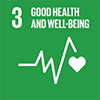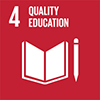A review from RCSI provides insight into the experiences of health professions students, and how they learn to manage uncertainty, which is common in the day-to-day practice of health-care.
Previous studies have found that health professionals' capacity to manage uncertainty can have major impacts on their work affecting their career choices, attitudes to patients, clinical decision-making skills and exposure to work-related stress. Health professionals' ability to manage uncertainty has also been linked to emotional well-being amongst patients, as well as greater patient satisfaction. However, there is little clear advice available to educators to support learning around uncertainty.
This review is the first of its kind to examine teaching and learning related to uncertainty in undergraduate student populations across various health professions. The review examines over 5,000 articles on uncertainty and education from the US, UK and Canada and explores how learners from a range of different health professions, including midwifery, physiotherapy, veterinary, dentistry, pharmacy, medical and nursing, engaged with uncertainty in education. The review reveals that majority of the research has been carried out within medical and nursing student settings.
The review also states that health professions students experience uncertainty when presented with complex or ambiguous situations. Reponses therefore can vary with students reacting in different ways based on their own tolerance of uncertainty, as well as their individual perceptions and interpretations of the situation in question.
A negative narrative
The review reveals that students experience uncertainty throughout education with students reporting different forms of uncertainty at many stages of their training. Uncertainties reported by students related to the practice of healthcare itself, the educational process and the students' self. The research also showed that there tended to be a negative narrative around uncertainty amongst students with many using words such as "discomfort", "stress" and "anxiety" to describe their experiences. Many researchers described a "maturation process", in that students' responses to uncertainty developed as they acquired more experience and knowledge.
Specific strategies found to support learning around uncertainty include arts-based teaching and clinical case presentations. Other types of teaching that were shown to provide ways for students to engage with uncertainty were problem-based learning, clinical teaching, humanities teaching, simulation, team-based learning, small group learning, tactical games, virtual patients and reflection and reflective practices.
Led by Dr Jenny Moffett from the Health Professions Education Centre at RCSI, the study has important implications for future training and educational programmes for health professionals.
The study was conducted by RCSI's Health Professions Education Centre and the School of Veterinary Medicine, College of Medical, Veterinary and Life Sciences, University of Glasgow, UK.
RCSI is committed to achieving a better and more sustainable future through the UN Sustainable Development Goals.


